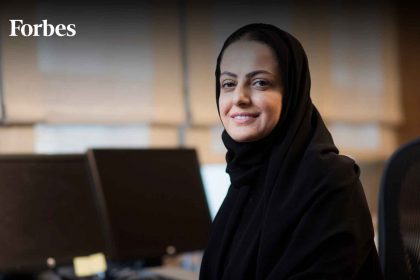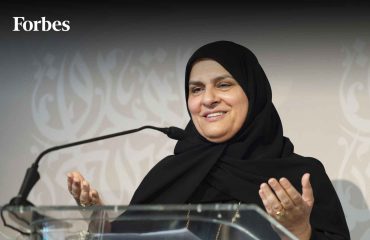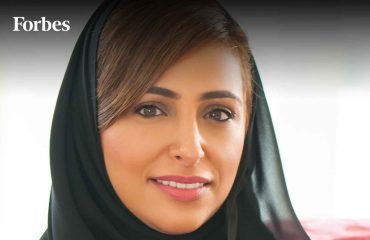
Emerging evidence on the impact of COVID-19 suggests that women’s economic and productive lives will be affected disproportionately and differently from men. Before COVID-19 became a global pandemic, women were doing three times as much unpaid care and domestic work as men, according to a UN report, “The Impact of COVID-19 on Women.” The situation is worse in developing economies where 70% of women’s employment is in the informal economy, with few protections against dismissal or for paid sick leave and limited access to social protection.
Given the exacerbating economic impact of the novel coronavirus on the informal economy, there is an urgent need to ensure that women are engaged at all stages of decision-making, a challenge undertaken by the B20 Saudi Arabia, which serves as the official G20 dialogue with the global business community.
“In the context of the pandemic, these challenges have never been more pressing to solve. Representing 70% of frontline healthcare and service workers, women are demonstrating their critical role in addressing one of the largest crises in recent history,” says Rania Nashar, CEO of Samba Financial Group. “Today, not only do we run the risk of delaying progress, we are at a high risk of losing progress that has been made so far.”
Nashar is currently on a mission to create an environment that levels the playing field for both women and men. She is currently chair of B20 Saudi Arabia’s engagement group, the Women in Business (WiB) Action Council—a team of more than 50 global business leaders from different G20 countries. The main role of the council? Pushing for gender equality and economic female empowerment.
“The Women in Business Action Council is the first initiative of its kind in the history of the B20. It has been established with the recognition that mainstreaming women in business is key to improving the standards of business conduct including integrity, empathy, and creativity, thus adding to economic growth and productivity,” says Yousef Al-Benyan, chair of the B20 Saudi Arabia and vice chairman and CEO of SABIC.
Gender diversity is looked at across three different categories: employment, professional growth, and career advancement. “Earlier in the pandemic we issued a joint statement with L20 and W20—other G20 engagement groups—highlighting critical actions that must be taken in support of workers, especially women,” explains Nashar. The council’s policy recommendations address both the immediate and medium-term priorities of the gendered impact of the pandemic outbreak that G20 countries are facing.
At the forefront of a real cultural shift, Nashar is widely recognized as a trailblazer for her contributions to the commercial banking sector. She became the first female CEO of a listed Saudi commercial bank, Samba Financial Group, in 2017, at a time when Saudi Arabia was just beginning to implement reforms to promote gender equality as part of its Vision 2030. In 2019, Samba Financial Group was Saudi’s fourth-largest bank, with $63 billion in assets.
Nashar’s ascension to CEO of Samba Financial Group was a journey 20 years in the making marked not by meteoric rise but by slow, persistent advancements. However, her career at Samba was less defined by gender than by the bank’s evolution and her professional excellence, a sign of growing opportunity that she hopes many more women can access at a faster rate than she did.
The pioneering business veteran—who ranked 97th on Forbes’ Most Powerful Woman 2019 list—places great significance on the participation of men to achieve workplace equality and create equal opportunities for women. “As leaders in business—and still holding the majority of the top roles—we need their participation not only in empowering women in leadership roles but also in helping drive discussions for a more inclusive and equal workplace,” she says.
Less than 20% of roles in the cloud, engineering, data, and artificial intelligence are occupied by women, signifying major underrepresentation of women in classic STEM fields, according to the World Economic Forum’s Global Gender Gap Report 2020. The key to shattering the glass ceiling for women to rise to their full potential and serve in leadership roles also has a strong association with access to the right skills. One way this issue is being tackled by the WiB Action Council is through youth participation.
“Our youth representatives play an active role in identifying solutions, and our policy recommendations aim to ensure a more inclusive future to help set our future female leaders up for success,” says Nashar.
At 33%, B20 Saudi Arabia—which consists of leading businesses from the G20 and other invited countries that develop and present policy recommendations to the G20 presidency—currently boasts the largest percentage of women participating in the task forces than any previous presidency.
Beyond the council, the Arab nation has achieved notable wins of late. In the World Bank’s 2020 ranking, Saudi Arabia ranked as the world’s top reformer last year to advance women’s economic participation. The number of working women in the country reached 1.03 million in the third quarter of 2019, making up 35% of the workforce, compared to 816,000 in 2015. Within education, around 35,000 Saudi women are currently studying abroad in 60 countries on government scholarships. These improvements have come from Saudi’s legislative policies established to increase female participation in the workforce from an average of just under 20% to over 40% as part of Vision 2030.
Nonetheless, Nashar is far from becoming complacent with Saudi’s growing success. “We have seen remarkable progress so far at home, and I am confident that this is just the beginning of our journey,” says a determined Nashar.
The restless visionary is now working on finalizing the policy recommendations that will be put forth to the G20 during their summit in November in Riyadh. Her purpose is clear: to motivate and incentivize women to undertake a leadership role no matter what career path they pursue—be it government, civil society, academia, or business.
Given the exacerbating economic impact of the novel coronavirus on the informal economy, there is an urgent need to ensure that women are engaged at all stages of decision-making, a challenge undertaken by the B20 Saudi Arabia, which serves as the official G20 dialogue with the global business community.
“In the context of the pandemic, these challenges have never been more pressing to solve. Representing 70% of frontline healthcare and service workers, women are demonstrating their critical role in addressing one of the largest crises in recent history,” says Rania Nashar, CEO of Samba Financial Group. “Today, not only do we run the risk of delaying progress, we are at a high risk of losing progress that has been made so far.”
Nashar is currently on a mission to create an environment that levels the playing field for both women and men. She is currently chair of B20 Saudi Arabia’s engagement group, the Women in Business (WiB) Action Council—a team of more than 50 global business leaders from different G20 countries. The main role of the council? Pushing for gender equality and economic female empowerment.
“The Women in Business Action Council is the first initiative of its kind in the history of the B20. It has been established with the recognition that mainstreaming women in business is key to improving the standards of business conduct including integrity, empathy, and creativity, thus adding to economic growth and productivity,” says Yousef Al-Benyan, chair of the B20 Saudi Arabia and vice chairman and CEO of SABIC.
Gender diversity is looked at across three different categories: employment, professional growth, and career advancement. “Earlier in the pandemic we issued a joint statement with L20 and W20—other G20 engagement groups—highlighting critical actions that must be taken in support of workers, especially women,” explains Nashar. The council’s policy recommendations address both the immediate and medium-term priorities of the gendered impact of the pandemic outbreak that G20 countries are facing.
At the forefront of a real cultural shift, Nashar is widely recognized as a trailblazer for her contributions to the commercial banking sector. She became the first female CEO of a listed Saudi commercial bank, Samba Financial Group, in 2017, at a time when Saudi Arabia was just beginning to implement reforms to promote gender equality as part of its Vision 2030. In 2019, Samba Financial Group was Saudi’s fourth-largest bank, with $63 billion in assets.
Nashar’s ascension to CEO of Samba Financial Group was a journey 20 years in the making marked not by meteoric rise but by slow, persistent advancements. However, her career at Samba was less defined by gender than by the bank’s evolution and her professional excellence, a sign of growing opportunity that she hopes many more women can access at a faster rate than she did.
The pioneering business veteran—who ranked 97th on Forbes’ Most Powerful Woman 2019 list—places great significance on the participation of men to achieve workplace equality and create equal opportunities for women. “As leaders in business—and still holding the majority of the top roles—we need their participation not only in empowering women in leadership roles but also in helping drive discussions for a more inclusive and equal workplace,” she says.
Less than 20% of roles in the cloud, engineering, data, and artificial intelligence are occupied by women, signifying major underrepresentation of women in classic STEM fields, according to the World Economic Forum’s Global Gender Gap Report 2020. The key to shattering the glass ceiling for women to rise to their full potential and serve in leadership roles also has a strong association with access to the right skills. One way this issue is being tackled by the WiB Action Council is through youth participation.
“Our youth representatives play an active role in identifying solutions, and our policy recommendations aim to ensure a more inclusive future to help set our future female leaders up for success,” says Nashar.
At 33%, B20 Saudi Arabia—which consists of leading businesses from the G20 and other invited countries that develop and present policy recommendations to the G20 presidency—currently boasts the largest percentage of women participating in the task forces than any previous presidency.
Beyond the council, the Arab nation has achieved notable wins of late. In the World Bank’s 2020 ranking, Saudi Arabia ranked as the world’s top reformer last year to advance women’s economic participation. The number of working women in the country reached 1.03 million in the third quarter of 2019, making up 35% of the workforce, compared to 816,000 in 2015. Within education, around 35,000 Saudi women are currently studying abroad in 60 countries on government scholarships. These improvements have come from Saudi’s legislative policies established to increase female participation in the workforce from an average of just under 20% to over 40% as part of Vision 2030.
Nonetheless, Nashar is far from becoming complacent with Saudi’s growing success. “We have seen remarkable progress so far at home, and I am confident that this is just the beginning of our journey,” says a determined Nashar.
The restless visionary is now working on finalizing the policy recommendations that will be put forth to the G20 during their summit in November in Riyadh. Her purpose is clear: to motivate and incentivize women to undertake a leadership role no matter what career path they pursue—be it government, civil society, academia, or business.
Source: Forbes Middle East




